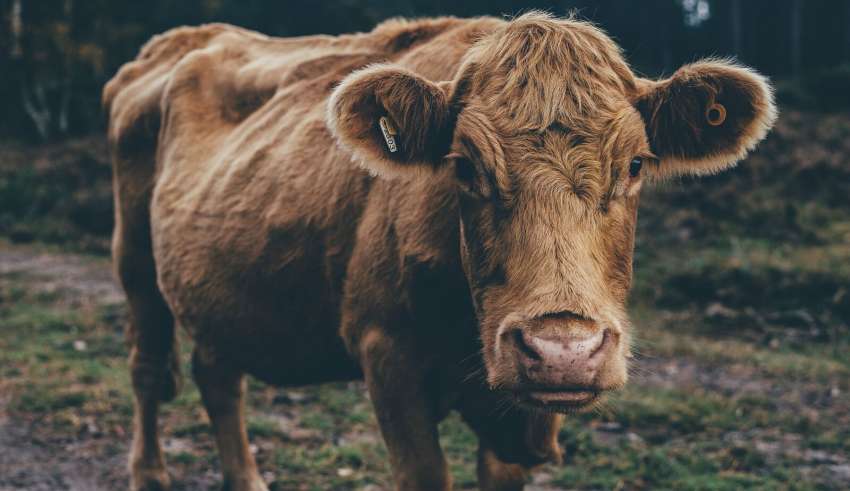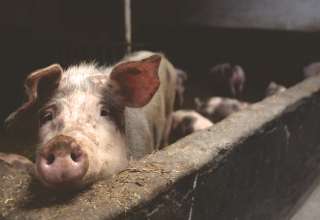
What Does ‘Halal’ Really Mean?
Nowadays, many of us are in search of the healthiest foods. We want to ensure what we eat is grown, raised, or prepared with care for the highest level of nutrition. A good way to achieve that is to eat “Halal.” Have you ever seen labels reading ‘Halal’ and wondered what it meant?
Halal simply means “lawful” or “permitted” in Arabic and, as it pertains to food, refers to what Muslims can eat, what ingredients are allowed in meals, and how animals must be slaughtered to guarantee lawful consumption.
In short, everyone can eat Halal food. Because of the care involved in the raising and killing of animals to be used for Muslim meals, even your health could benefit from eating Halal meat. Another way to achieve healthy eating is by avoiding what God commands us not to eat.
Food: Halal & Haram
Under Islamic guidelines, you are free to eat any food except those which are deemed haram, which means “forbidden” in Arabic. Haram foods include any type of pork, including bacon, ham, or any pork by-products. Also to be avoided are all types of alcohol, non-Halal animal shortening, animal blood, and blood by-products. Fish and seafood can be enjoyed with the exception of alligators, frogs, and crocodiles. Carnivorous animals, animals that were dead before they were slaughtered, and birds of prey are also off limits.
If you would like to adopt a Halal diet, pay attention to common recipe ingredients when cooking. For example, did you know gelatin, which is found in some foods and candies, is made of pork? Lard, which is pig fat, is also on some recipe lists. To be safe, check labels. Those listing kosher ingredients signal pork-free products and can be eaten. Also, many restaurants will identify foods cooked in alcohol, wine or beer. If in doubt, ask your server or avoid the food completely.
What Determines Halal Slaughter?
Though the term Halal food refers to any and all food which you are allowed to eat, it is most closely associated with meat and how the slaughtered animal is raised and killed. As a result, there are several clear guidelines which must be followed for meat to be considered Halal. All of these requirements concern the health of the animal, the humanity with which it is raised, and the mercy it’s shown when it is killed.
Etiquette of Slaughter
Here are both the recommended and the required essentials to qualify meat as Halal. The emphasized points are requirements that must be met.
To the best of your knowledge‚ the animal should have been fed in a way that is healthful and nourishing to them‚ free from harmful antibiotics‚ steroids‚ hormones or any unhealthy food to fatten them unnaturally.
-
To the best of your knowledge‚ the animal was treated kindly and given clean and appropriate living conditions.
-
The one slaughtering the animal must be a Muslim of sound mind.
-
He or she must say “In the name of Allah” (Bismillah) before issuing the fatal cut‚ which should be done with a sharp knife to the throat with one continuous motion so as to ensure the animal feels no pain. Invoking the name of God is a way of recognizing God’s blessing of the animal and demonstrating our gratefulness to Him in providing us with food to eat.
-
Cutting the spinal cord is not allowed.
-
Killing the animal by clubbing‚ goring or any other method other than cutting the neck with a sharp knife is not acceptable.
-
Abused‚ underfed or otherwise mistreated animals cannot be killed for Halal meat.
-
Animals heading to slaughter should not see other animals killed ahead of them‚ should not see the blade or it being sharpened in preparation‚ and should not be placed in an uncomfortable position immediately before the cut.
-
Finally‚ the slaughtered animal must bleed out completely before it’s prepared for human consumption.
These guidelines are in line with the Quran, which clearly defines what type of animals are off limits to people and details how animals are to be treated with mercy before they are killed.
“Prohibited to you are dead animals, blood, the flesh of swine, and that which has been dedicated to other than Allah, and [those animals] killed by strangling or by a violent blow or by a head-long fall or by the goring of horns, and those from which a wild animal has eaten, except what you [are able to] slaughter [before its death]..” [Noble Quran 5:3]
Why Halal Food Matters
The most important reason to eat Halal food is to obey God’s commands. Following His will is a way to draw closer to Him by accepting His instruction. In addition, as your Creator and the Creator for the whole of creation, He knows what is best and detrimental for you.
Avoiding foods God prohibits helps protect you from harm. For instance, scientists and doctors have long associated the link between alcohol consumption and damage to the body, not to mention the altered state of mind which can result when one becomes inebriated. As for the ill effects of pork, their digestive systems aren’t nearly as complex as those of Halal animals such as cows, meaning much of the unhealthy bacteria and toxins from their food isn’t expelled out of their bodies during the digestion and output process and is instead stored in their bodies.
Likewise, eating foods that are permissible and Halal helps us avoid health risks associated with non-Halal foods. All of God’s commandments are meant not only for his worship, but they also incur a benefit, either spiritual or physical, for all those who follow them.
Experience Halal Yourself
Why not stop by at your local Halal grocer the next time you’re in the market for meat? Or perhaps a visit to a Halal restaurant could make for a fun night out at a new eatery. Whatever your reason for eating Halal, you can be confident the food you’re eating will be a benefit to your health and in accordance with God’s laws.










